11 Foods That Quietly Send Your Cholesterol Soaring
Cholesterol, a waxy substance found in your blood, is essential for building healthy cells. However, too much cholesterol can lead to heart disease, a leading cause of death worldwide. While most people are aware of the usual suspects—like red meat and fried foods—there's a myriad of unsuspecting delights that can stealthily raise your cholesterol levels. This article embarks on a journey to uncover 11 surprising foods and habits that may be secretly sabotaging your health. The importance of cholesterol management cannot be overstated. High cholesterol is often a silent threat, showing no symptoms until it manifests as a serious health issue. This makes it crucial to identify and mitigate unexpected sources of cholesterol in your diet. In this comprehensive exploration, we will delve into each of these surprising delights, examining their nutritional profiles and the science behind their impact on cholesterol levels. From beloved breakfast staples to seemingly innocent snacks, prepare to be surprised by what might be lurking in your pantry.
1. The Breakfast Paradox - Eggs
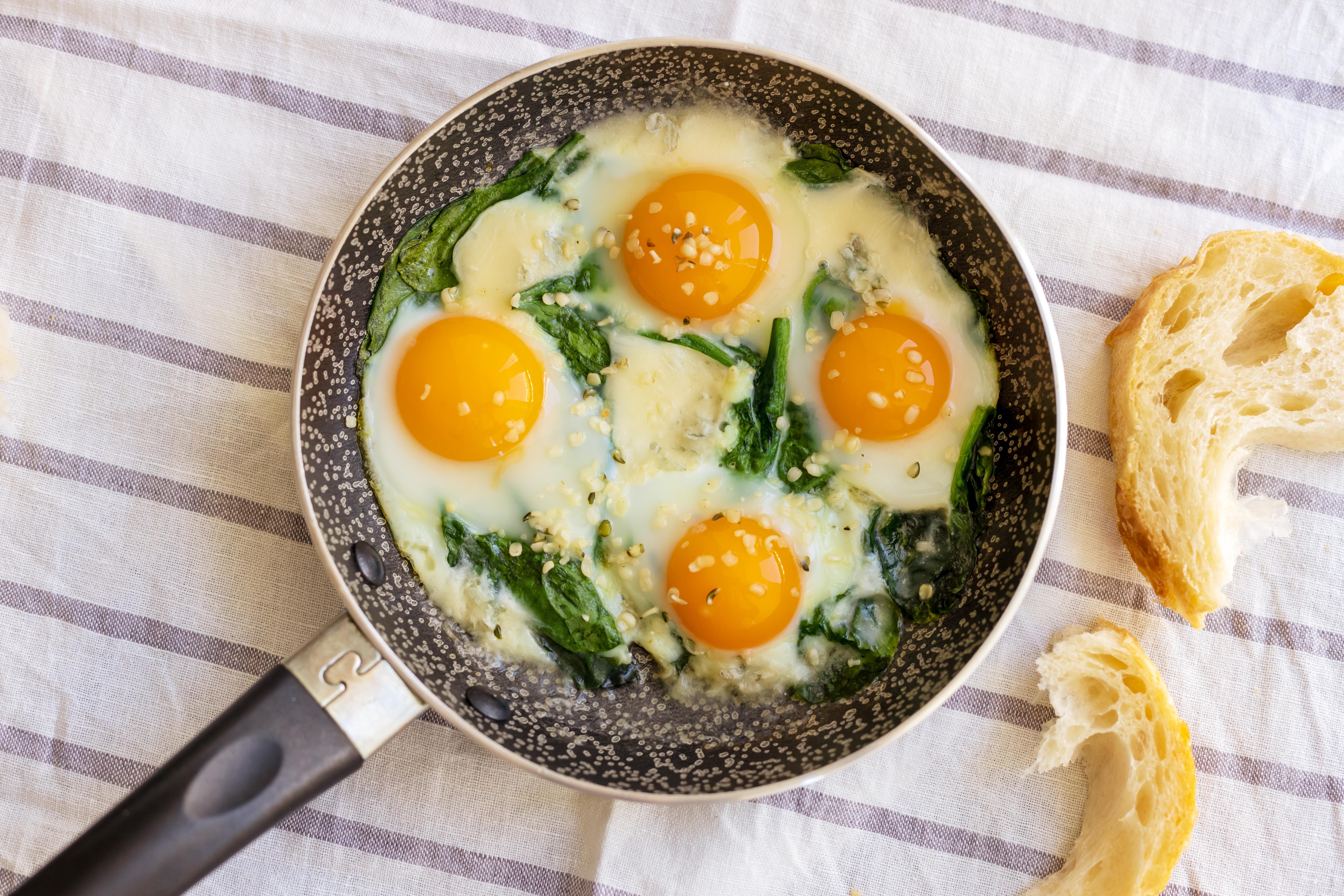
Eggs have long been a breakfast staple, celebrated for their high protein content and versatility. However, they also contain a significant amount of dietary cholesterol, primarily found in the yolk. One large egg contains about 186 milligrams of cholesterol, which is more than half of the daily recommended intake for healthy individuals. While eggs offer essential nutrients like vitamins B12 and D, and choline, their cholesterol content can be a concern, especially when consumed in excess. Recent studies have sparked debate over the impact of eggs on heart health. Some research suggests that moderate egg consumption does not significantly affect cholesterol levels in most people. However, individuals with certain health conditions, such as diabetes, may experience a stronger response. It's crucial to balance egg consumption with other dietary sources of cholesterol and saturated fats. Incorporating egg whites or plant-based alternatives can help reduce cholesterol intake while still enjoying the benefits of eggs. Understanding the role of eggs in your diet requires a nuanced approach. While they are nutrient-dense, moderation is key. Pairing eggs with fiber-rich foods, like whole grain toast or vegetables, can help mitigate their cholesterol impact. As you savor your morning omelet, remember that balance and variety are essential components of a heart-healthy diet.
2. The Cheese Conundrum
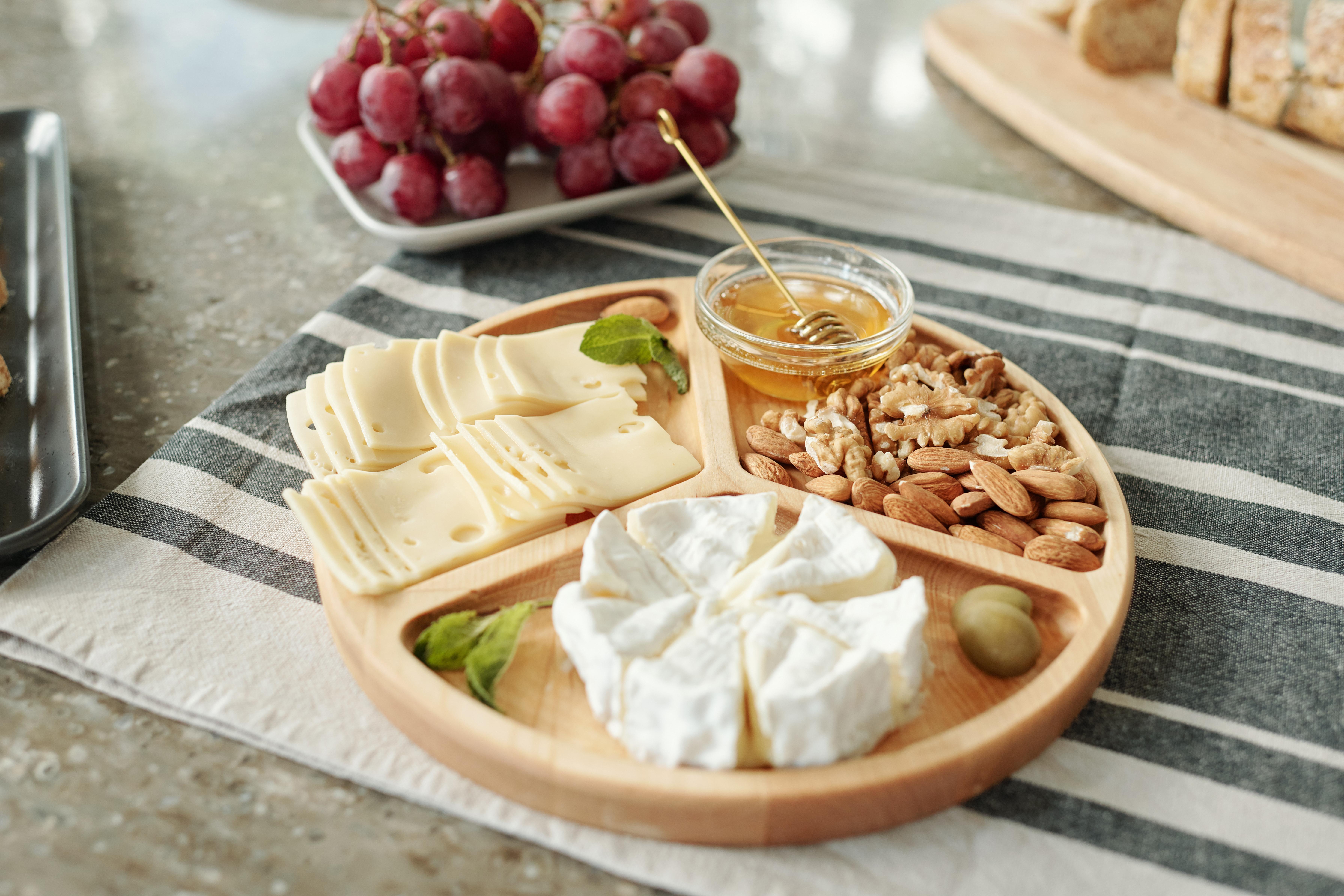
Cheese, a beloved comfort food, is another surprising contributor to high cholesterol levels. While it provides calcium and protein, cheese is also high in saturated fats, which can raise LDL (low-density lipoprotein) cholesterol. This "bad" cholesterol can lead to plaque buildup in the arteries, increasing the risk of heart disease. The type of cheese and portion size play significant roles in its impact on cholesterol levels. Hard cheeses like cheddar and Parmesan tend to have higher fat content compared to softer varieties like mozzarella. However, even small portions of cheese can contribute to daily saturated fat intake. The key is moderation and choosing lower-fat options when possible. Opting for reduced-fat or part-skim cheeses can help lower cholesterol intake without sacrificing flavor. Cheese lovers need not despair. There are ways to enjoy cheese while keeping cholesterol in check. Incorporating cheese into dishes with plenty of vegetables or whole grains can help balance its effects. Additionally, plant-based cheese alternatives made from nuts or soy offer cholesterol-free options for those looking to reduce their intake. By being mindful of portion sizes and choosing heart-healthier varieties, you can continue to savor the creamy goodness of cheese without compromising your cholesterol levels.
3. The Sneaky Snack - Popcorn

Popcorn, often perceived as a light and healthy snack, can be a hidden source of cholesterol-raising ingredients. Plain, air-popped popcorn is low in calories and high in fiber, making it a nutritious choice. However, the preparation method and toppings can transform this wholesome snack into a cholesterol-laden treat. Movie theater popcorn, for instance, is typically popped in oils high in saturated fats and topped with butter, significantly increasing its cholesterol impact. The key to enjoying popcorn without the cholesterol spike lies in preparation. Opt for air-popping methods and use heart-healthy oils like olive or coconut oil if you prefer a bit of fat. Seasoning with herbs, spices, or nutritional yeast can add flavor without the need for butter or salt. By controlling the ingredients, you can create a satisfying snack that's both delicious and heart-friendly. Popcorn serves as a reminder that even seemingly healthy snacks can harbor hidden risks. Being aware of preparation methods and ingredient choices empowers you to make smarter snacking decisions. With a few adjustments, you can enjoy a bowl of popcorn while keeping your cholesterol levels in check, proving that healthy eating doesn't have to mean sacrificing taste.
4. The Nutty Dilemma - Nuts
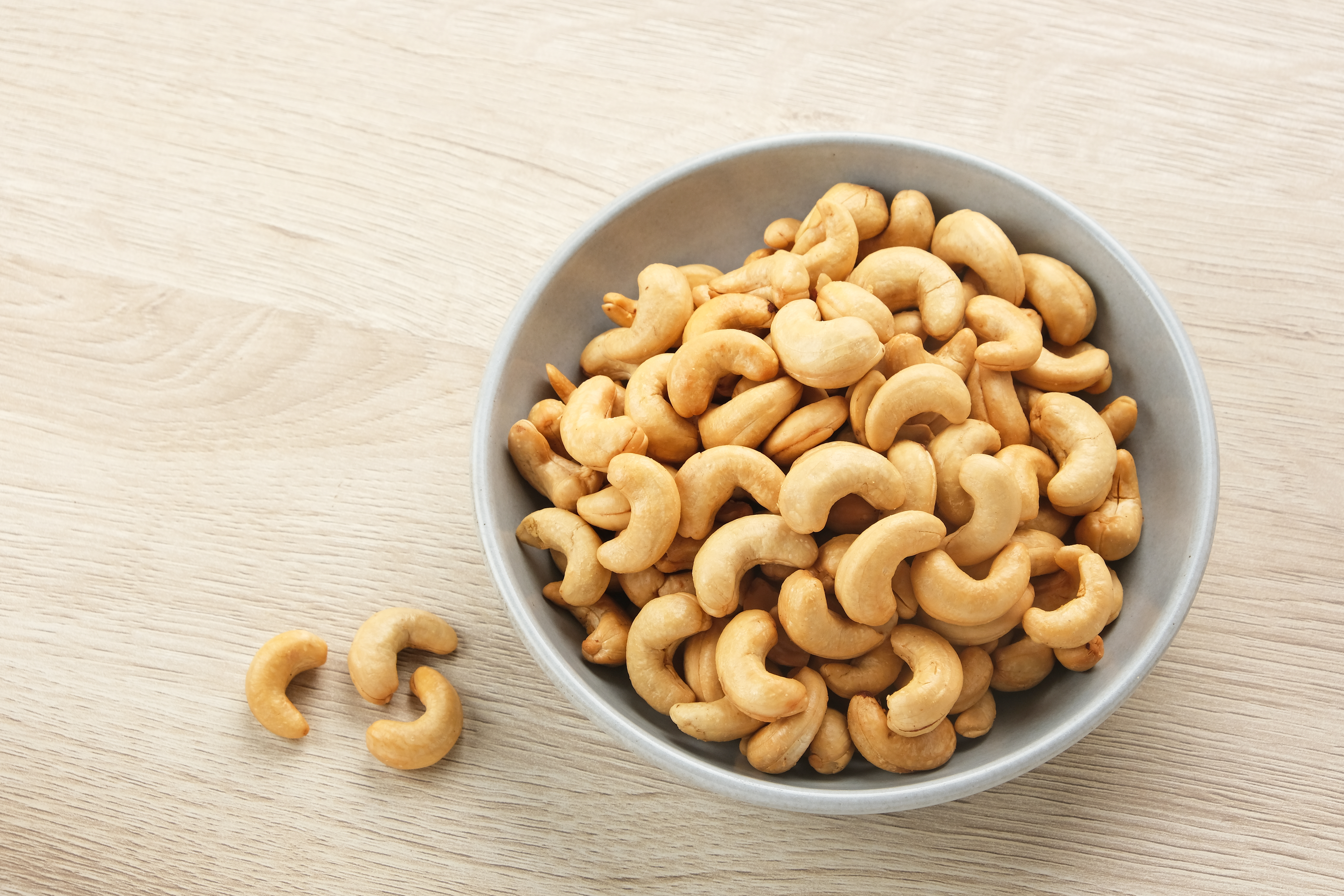
Nuts are often touted as heart-healthy snacks due to their high content of unsaturated fats, fiber, and antioxidants. However, not all nuts are created equal when it comes to cholesterol. While nuts like almonds and walnuts can help lower LDL cholesterol, others, such as macadamia nuts and cashews, are higher in saturated fats, which can have the opposite effect when consumed in large quantities. The challenge with nuts lies in portion control. They are calorie-dense, and it's easy to consume more than the recommended serving size. A handful of nuts can quickly turn into several, leading to an unintended increase in saturated fat intake. To reap the heart-healthy benefits of nuts without raising cholesterol, it's essential to stick to appropriate serving sizes and choose varieties with higher unsaturated fat content. Incorporating nuts into your diet requires mindful eating. Pairing them with fruits or adding them to salads can enhance both flavor and nutrition. Additionally, choosing raw or dry-roasted nuts without added oils or salt can further reduce cholesterol risks. By selecting the right types of nuts and enjoying them in moderation, you can harness their health benefits while keeping cholesterol levels in check.
5. The Creamy Culprit - Ice Cream

Ice cream, a beloved dessert, is another surprising delight that can secretly raise cholesterol levels. Its creamy texture is achieved through the use of high-fat dairy products, which are rich in saturated fats and cholesterol. A single serving of ice cream can contain up to 20 grams of fat, with a significant portion being saturated. This indulgence can contribute to increased LDL cholesterol and, over time, impact heart health. For ice cream enthusiasts, the key is to enjoy this treat in moderation and explore healthier alternatives. Many brands now offer low-fat or non-dairy options made from almond, coconut, or soy milk, which can satisfy sweet cravings without the cholesterol. Additionally, homemade ice cream using yogurt or fruit-based sorbets can provide a refreshing alternative with less fat and sugar. Balancing indulgence with health is possible by being mindful of portion sizes and choosing lower-cholesterol options. Ice cream can still be a part of a heart-healthy diet when consumed occasionally and in moderation. By exploring creative alternatives and making conscious choices, you can enjoy the creamy delight of ice cream while keeping cholesterol levels in check.
6. The Salad Saboteur - Dressings
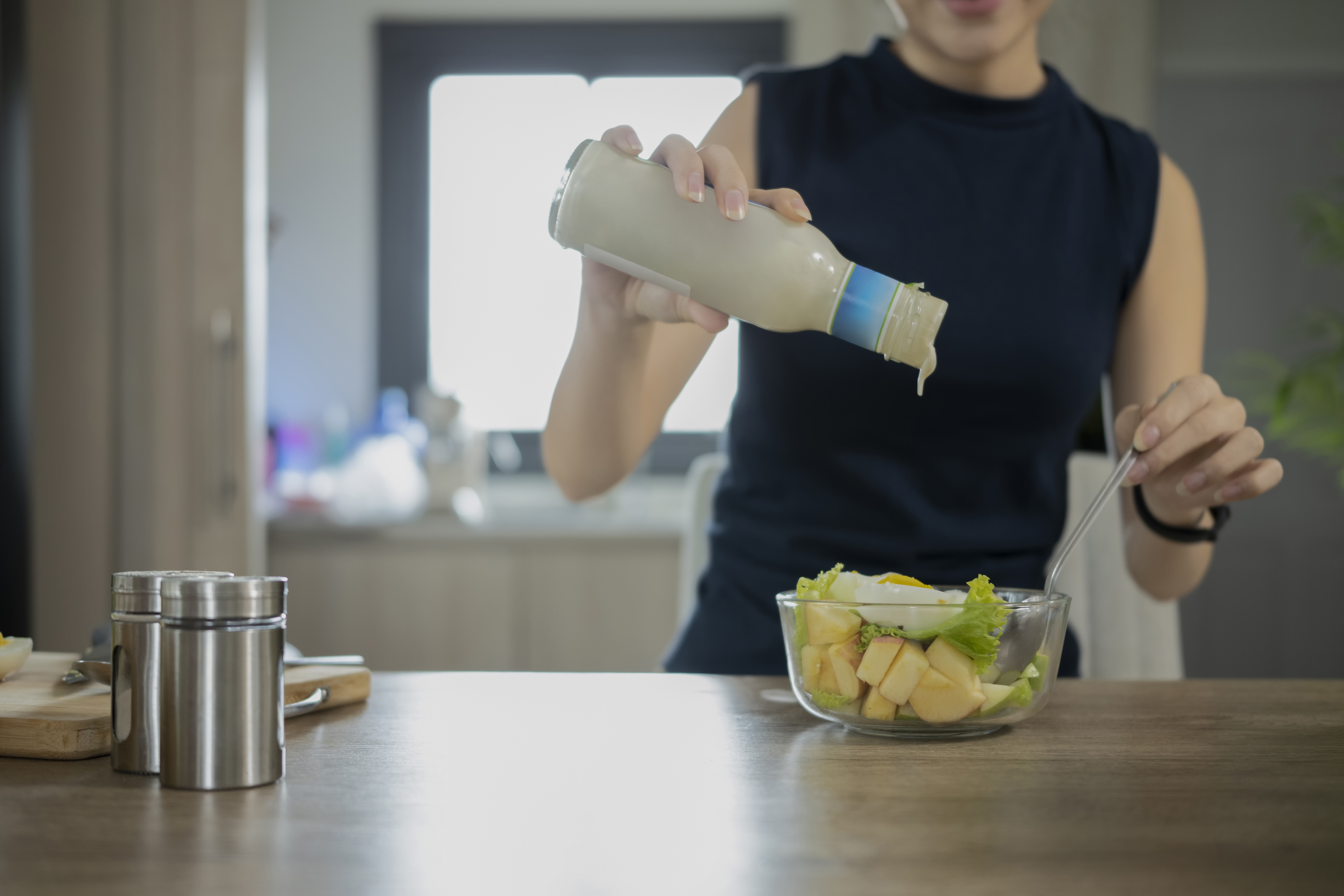
Salads are often associated with healthy eating, but the dressings used can turn them into cholesterol-raising dishes. Creamy dressings like ranch, Caesar, and blue cheese are typically high in saturated fats and cholesterol, often overshadowing the nutritional benefits of the vegetables. Even vinaigrettes, if made with oils high in saturated fats, can contribute to elevated cholesterol levels. Creating heart-healthy salads requires careful selection of dressings. Opting for dressings made with olive oil, vinegar, or lemon juice can enhance flavor without adding cholesterol. Homemade dressings allow for control over ingredients, ensuring a healthier choice. Incorporating herbs, spices, and mustard can add depth and taste without the need for heavy creams or cheeses. Salads can be a nutritious and satisfying meal when prepared thoughtfully. By focusing on fresh ingredients and choosing dressings wisely, you can enjoy a delicious salad that supports heart health. Remember, the key is to complement the natural flavors of the vegetables rather than mask them with high-cholesterol toppings. With a few adjustments, you can transform your salads into heart-healthy delights.
7. The Seafood Surprise - Shellfish
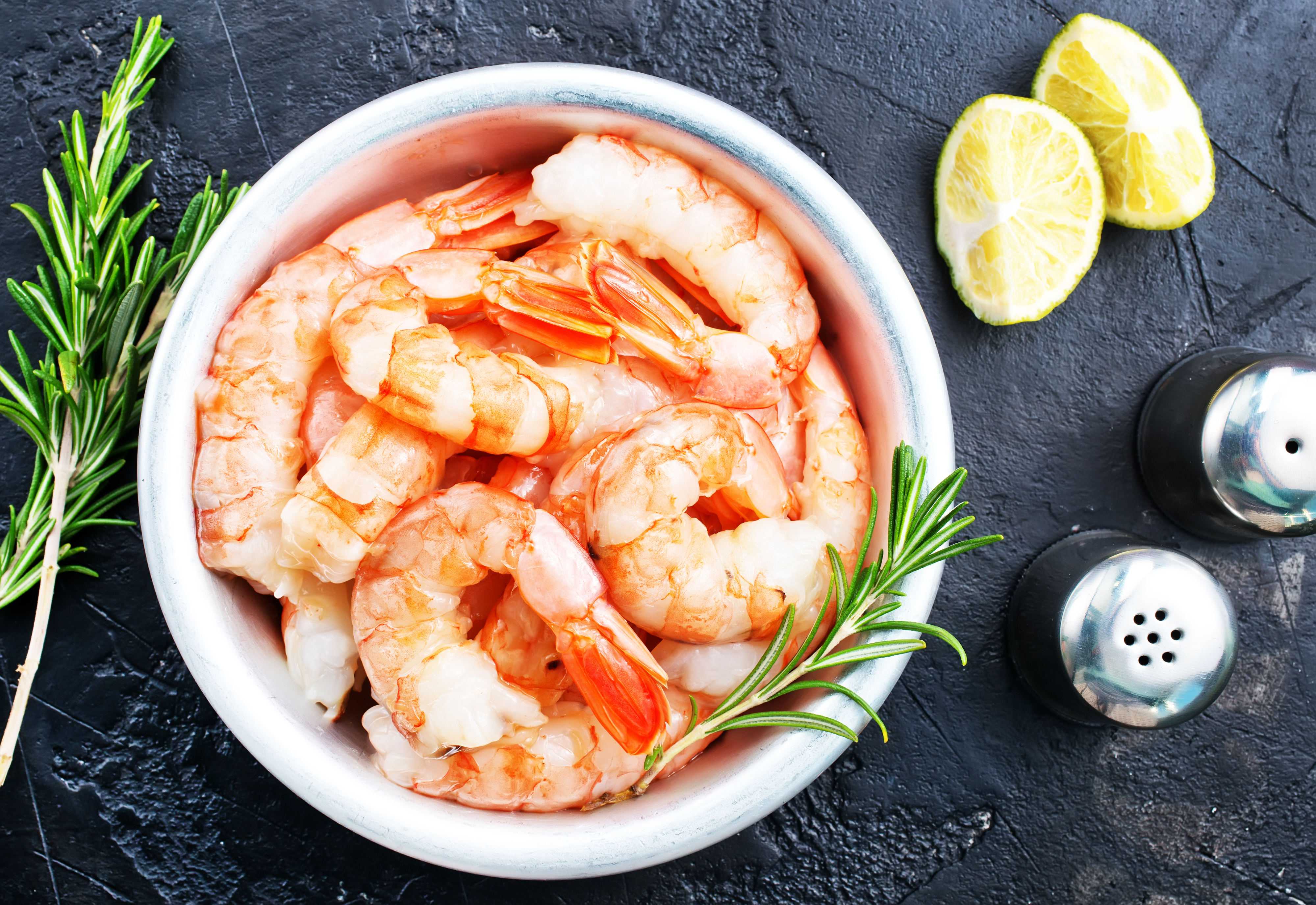
Shellfish, including shrimp, crab, and lobster, are often considered healthy sources of protein and omega-3 fatty acids. However, they also contain higher levels of dietary cholesterol compared to other seafood. For instance, a serving of shrimp can contain up to 200 milligrams of cholesterol. While shellfish are low in saturated fats, their cholesterol content can be a concern for those monitoring their levels. The relationship between shellfish and cholesterol is complex. While they do contain cholesterol, they also provide essential nutrients that support heart health. The key is moderation and balance. Pairing shellfish with fiber-rich foods, like vegetables or whole grains, can help mitigate their cholesterol impact. Additionally, preparation methods matter; grilling or steaming shellfish instead of frying can reduce added fats. Understanding the nutritional profile of shellfish can help you make informed dietary choices. By enjoying shellfish in moderation and focusing on heart-healthy preparation methods, you can benefit from their nutritional value without significantly impacting cholesterol levels. As with all foods, balance and variety are crucial components of a healthy diet.
8. The Beverage Blind Spot - Coffee Creamers

Coffee creamers, often used to enhance the flavor of morning brews, can be a hidden source of cholesterol-raising ingredients. Many creamers contain trans fats and hydrogenated oils, which can increase LDL cholesterol and decrease HDL (high-density lipoprotein) cholesterol, the "good" cholesterol. Even non-dairy creamers, while cholesterol-free, may contain unhealthy fats that impact heart health. Choosing heart-healthy coffee additives requires careful label reading. Opting for creamers made from almond, soy, or oat milk can provide a cholesterol-free alternative. Additionally, using small amounts of real milk or cream, which contain natural fats, can be a better option than heavily processed creamers. Flavoring coffee with spices like cinnamon or nutmeg can also add taste without the need for creamers. Coffee lovers can still enjoy their favorite beverage without compromising heart health. By selecting healthier creamer options and being mindful of portion sizes, you can savor your morning cup while keeping cholesterol levels in check. Remember, even small dietary changes can have a significant impact on overall health.
9. The Hidden Hazard - Baked Goods

Baked goods, from pastries to muffins, are often laden with hidden fats and sugars that can raise cholesterol levels. Many commercial baked goods contain trans fats and saturated fats, used to enhance texture and shelf life. These unhealthy fats can increase LDL cholesterol and contribute to heart disease over time. Even homemade baked goods can be a source of cholesterol if made with butter, cream, or shortening. Enjoying baked treats requires a mindful approach. Opting for recipes that use heart-healthy oils, like olive or canola oil, can reduce saturated fat content. Incorporating whole grains, nuts, and fruits can enhance nutritional value and provide fiber, which can help lower cholesterol levels. Additionally, being mindful of portion sizes and frequency of consumption is key to maintaining a balanced diet. Baked goods can still be a part of a heart-healthy lifestyle with a few adjustments. By experimenting with healthier ingredients and moderating consumption, you can enjoy the occasional treat without significantly impacting cholesterol levels. Remember, balance and variety are essential components of a healthy diet.
10. The Unexpected Indulgence - Chocolate

Chocolate, especially dark chocolate, is often praised for its potential health benefits due to its high antioxidant content. However, many chocolate products, particularly milk chocolate and chocolates with added ingredients like caramel or nuts, can be high in saturated fats and sugars. These ingredients can contribute to elevated cholesterol levels and negate the potential benefits of chocolate. Choosing heart-healthy chocolate options involves selecting dark chocolate with a high cocoa content, as it contains less sugar and fat. Moderation is crucial, as even dark chocolate can contribute to calorie and fat intake if consumed in excess. Pairing chocolate with fruits or nuts can enhance its nutritional profile and provide additional health benefits. Indulging in chocolate doesn't have to derail your cholesterol management efforts. By selecting high-quality dark chocolate and enjoying it in moderation, you can savor its rich flavor while supporting heart health. Remember, even small indulgences can be part of a balanced diet when consumed thoughtfully.
11. The Sweet Saboteur - Desserts

Desserts, from cakes to cookies, are often rich in fats and sugars, making them a significant source of cholesterol-raising ingredients. Many desserts are made with butter, cream, and other high-fat dairy products, contributing to both saturated fat and cholesterol intake. Even seemingly healthy desserts, like fruit tarts or yogurt parfaits, can contain hidden sugars and fats. Enjoying desserts without compromising heart health requires creativity and moderation. Opting for recipes that use alternative sweeteners, like honey or maple syrup, can reduce sugar content. Incorporating fruits, nuts, and whole grains can enhance nutritional value and provide fiber, which can help lower cholesterol levels. Additionally, being mindful of portion sizes and frequency of consumption is key to maintaining a balanced diet. Desserts can still be a part of a heart-healthy lifestyle with a few adjustments. By experimenting with healthier ingredients and moderating consumption, you can enjoy the occasional treat without significantly impacting cholesterol levels. Remember, balance and variety are essential components of a healthy diet.
Navigating the Cholesterol Labyrinth

As we've explored throughout this article, many beloved foods and habits can secretly contribute to elevated cholesterol levels. From breakfast staples like eggs to indulgent desserts, understanding the nutritional profiles and potential impacts of these delights is crucial for maintaining heart health. The key to managing cholesterol lies in moderation, balance, and informed choices. Empowering yourself with knowledge about the hidden sources of cholesterol allows you to make dietary adjustments that support overall health. By focusing on heart-healthy alternatives, mindful portion sizes, and a varied diet, you can enjoy your favorite foods while keeping cholesterol levels in check. Remember, small changes can lead to significant health benefits over time. As you navigate the complex world of cholesterol, let this article serve as a guide to making informed and heart-healthy choices. By understanding the hidden risks and embracing a balanced approach, you can enjoy a delicious and nutritious diet that supports both your heart and your overall well-being.